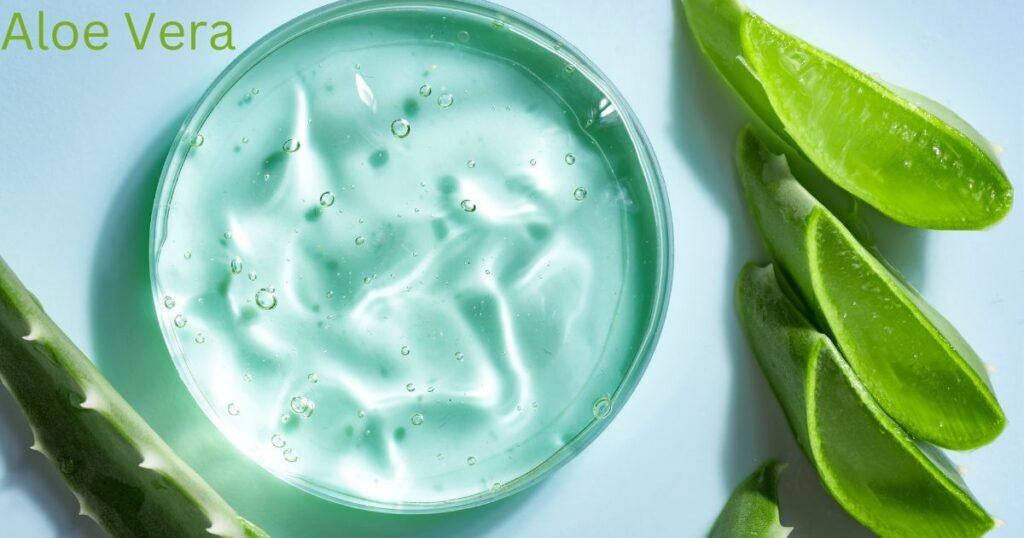Aloe Vera, often dubbed the “miracle plant,” has been used for centuries in traditional medicine and beauty regimens across cultures. From ancient Egypt, where it was known as the “plant of immortality,” to modern health and skincare industries, Aloe Vera’s versatility has earned it a prominent place in homes and commercial products alike.
A Brief History of Aloe Vera
Across the world in Greece and Rome, Aloe Vera was utilized as a healing balm for soldiers, treating wounds and burns. Similarly, Ayurvedic medicine in India praised Aloe for its ability to balance the body’s doshas, particularly in cooling Pitta-related ailments like inflammation and heat rashes. Over time, Aloe Vera’s reputation spread to China, Japan, and the Middle East, becoming a staple in traditional medicine and religious ceremonies.
In modern times, Aloe Vera has found its place in mainstream beauty and healthcare. From topical gels and creams to supplements and drinks, the plant’s versatility and efficacy have made it a popular ingredient in countless products.
The Science Behind Aloe Vera’s Healing Powers
While Aloe Vera has been used for millennia, recent scientific research has begun to uncover the mechanisms behind its healing powers. The plant’s thick leaves contain a gel-like substance that is packed with over 75 active compounds, including vitamins, minerals, enzymes, amino acids, and polysaccharides.
Here’s a closer look at some of the key components:
Vitamins and Antioxidants: Aloe Vera is rich in vitamins A, C, and E, which are potent antioxidants that help protect the skin from free radical damage. Vitamin B12 and folic acid are also present, aiding in cell regeneration and supporting overall health.
Minerals: Aloe Vera contains calcium, magnesium, zinc, chromium, selenium, and copper. These minerals are essential for healthy skin and hair, promoting cellular repair and protecting against environmental damage.
Enzymes: Enzymes like amylase and lipase are present in Aloe Vera, aiding in the breakdown of sugars and fats when consumed. This helps improve digestion and nutrient absorption.
Amino Acids: Aloe contains 20 of the 22 amino acids that the human body needs. Eight of these are essential amino acids, which the body cannot produce on its own, making Aloe Vera a great natural source for these vital building blocks.
Polysaccharides: One of the most crucial components of Aloe Vera is its polysaccharides. These long-chain sugars help in moisture retention, boost the immune system, and have been shown to have anti-inflammatory and healing properties.
Saponins and Lignin: Saponins are compounds with cleansing properties, helping to remove dirt and oils from the skin. Lignin, on the other hand, allows Aloe Vera to penetrate deeply into the skin, delivering nutrients and moisture to the underlying layers.
Aloe Vera for Skin: A Natural Elixir
When it comes to skin health, Aloe Vera is a true powerhouse. Its hydrating, anti-inflammatory, and healing properties make it an ideal remedy for various skin conditions, from acne to sunburns.
1. Soothes Sunburns and Burns
Aloe Vera gel is perhaps best known for its ability to soothe and heal sunburns. Its cooling properties provide immediate relief from the pain and inflammation caused by UV damage, while its polysaccharides promote skin repair and regeneration. Studies have shown that Aloe Vera can speed up the healing process of burns by reducing the amount of time it takes for damaged skin to recover.
To use Aloe Vera for sunburn, simply apply the gel directly to the affected area several times a day. For better effect store in a cool place.
2. Hydrates and Moisturizes
Aloe Vera is an excellent natural moisturizer, particularly for those with oily or combination skin. Unlike heavy creams and lotions, Aloe Vera gel absorbs quickly without leaving a greasy residue, making it perfect for daily use. Its hydrating properties are due to its high water content (around 99%) and its ability to lock moisture into the skin.
If you struggle with dry patches, try applying Aloe Vera gel as a lightweight moisturizer or as an overnight mask to hydrate your skin while you sleep.
3. Fights Acne and Reduces Scarring
Aloe Vera’s anti-inflammatory properties make it effective in treating acne, particularly for those with sensitive skin. It helps reduce redness and swelling, while its antibacterial compounds, such as salicylic acid, prevent further breakouts. Additionally, the vitamins and amino acids in Aloe Vera can help repair skin cells, reducing the appearance of acne scars over time.
For acne treatment, mix Aloe Vera gel with a few drops of tea tree oil and apply it to affected areas after cleansing. The combination of Aloe’s healing power and the tea tree’s antimicrobial properties can significantly improve skin clarity.
4. Anti-Aging Benefits
Aloe Vera’s antioxidants, particularly vitamins C and E, help combat the effects of aging by neutralizing free radicals that cause premature wrinkles and fine lines. The plant also promotes collagen production, which keeps the skin firm and youthful.
Incorporating Aloe Vera into your skincare routine can help improve skin elasticity, reduce the appearance of fine lines, and prevent further signs of aging. Try using Aloe Vera gel as a natural primer before applying makeup or sunscreen to give your skin an extra boost of hydration and protection.
5. Heals Wounds and Cuts
Due to its powerful healing properties, Aloe Vera has been traditionally used to treat wounds and cuts. The plant’s enzymes and polysaccharides stimulate cell regeneration, allowing wounds to heal faster. Additionally, Aloe Vera’s antibacterial properties help prevent infections.
For minor cuts, scrapes, or insect bites, apply Aloe Vera gel directly to the area to soothe irritation and promote healing.
Aloe Vera for Hair: Strengthen and Revitalize
Aloe Vera is just as beneficial for hair as it is for the skin. Its nourishing and hydrating properties can help improve scalp health, reduce dandruff, and promote stronger, shinier hair. Let’s explore how Aloe Vera can revitalize your hair:
1. Soothes Dry Scalp and Reduces Dandruff
Aloe Vera’s moisturizing properties make it an effective remedy for a dry, itchy scalp. It helps soothe irritation and reduces flakiness associated with dandruff. Aloe Vera contains enzymes that break down dead skin cells, preventing them from clogging hair follicles and causing dandruff.
To treat dandruff, apply Aloe Vera gel directly to your scalp and massage it in. Leave the gel on your hair half an hour before shampooing.
2. Strengthens Hair and Prevents Breakage
Aloe Vera’s amino acids and vitamins help strengthen hair strands, making them less prone to breakage and split ends. The plant’s enzymes also remove excess oils and dirt from the scalp, creating a healthier environment for hair growth.
For stronger hair, mix Aloe Vera gel with coconut oil or castor oil and apply it as a hair mask. Leave it on for 20-30 minutes before rinsing to nourish and fortify your strands.
3. Promotes Hair Growth
By improving scalp health and increasing blood circulation, Aloe Vera can help stimulate hair growth. Its enzymes break down dead skin cells that can block hair follicles, while its nutrient-rich gel provides the necessary vitamins and minerals for healthy hair growth.
To promote hair growth, mix Aloe Vera gel with a few drops of rosemary essential oil and massage it into your scalp.
4. Adds Shine and Reduces Frizz
Aloe Vera’s high moisture content helps hydrate hair, reducing frizz and adding a natural shine. It smooths the hair cuticle, making strands appear sleek and glossy without weighing them down.
For a natural shine boost, use Aloe Vera gel as a leave-in conditioner. simply apply on your and make a desired hairstyle.
Incorporating Aloe Vera into Your Daily Routine
Now that you know the many benefits of Aloe Vera, you may be wondering how to incorporate it into your daily routine. Fortunately, Aloe Vera is incredibly versatile and can be used in various forms, including:
Aloe Vera Gel: The most common form, Aloe Vera gel is great for topical application. You can use it directly from the plant or purchase pure Aloe Vera gel from a reputable source.
Aloe Vera Juice: Drinking Aloe Vera juice provides internal benefits, such as improved digestion and hydration. Be sure to choose a juice that is free from added sugars and artificial ingredients.
Aloe Vera in Skincare and Haircare Products: Many skincare and haircare products contain Aloe Vera as a key ingredient. Look for moisturizers, shampoos, and conditioners that feature Aloe Vera to enjoy its benefits in a convenient form.


